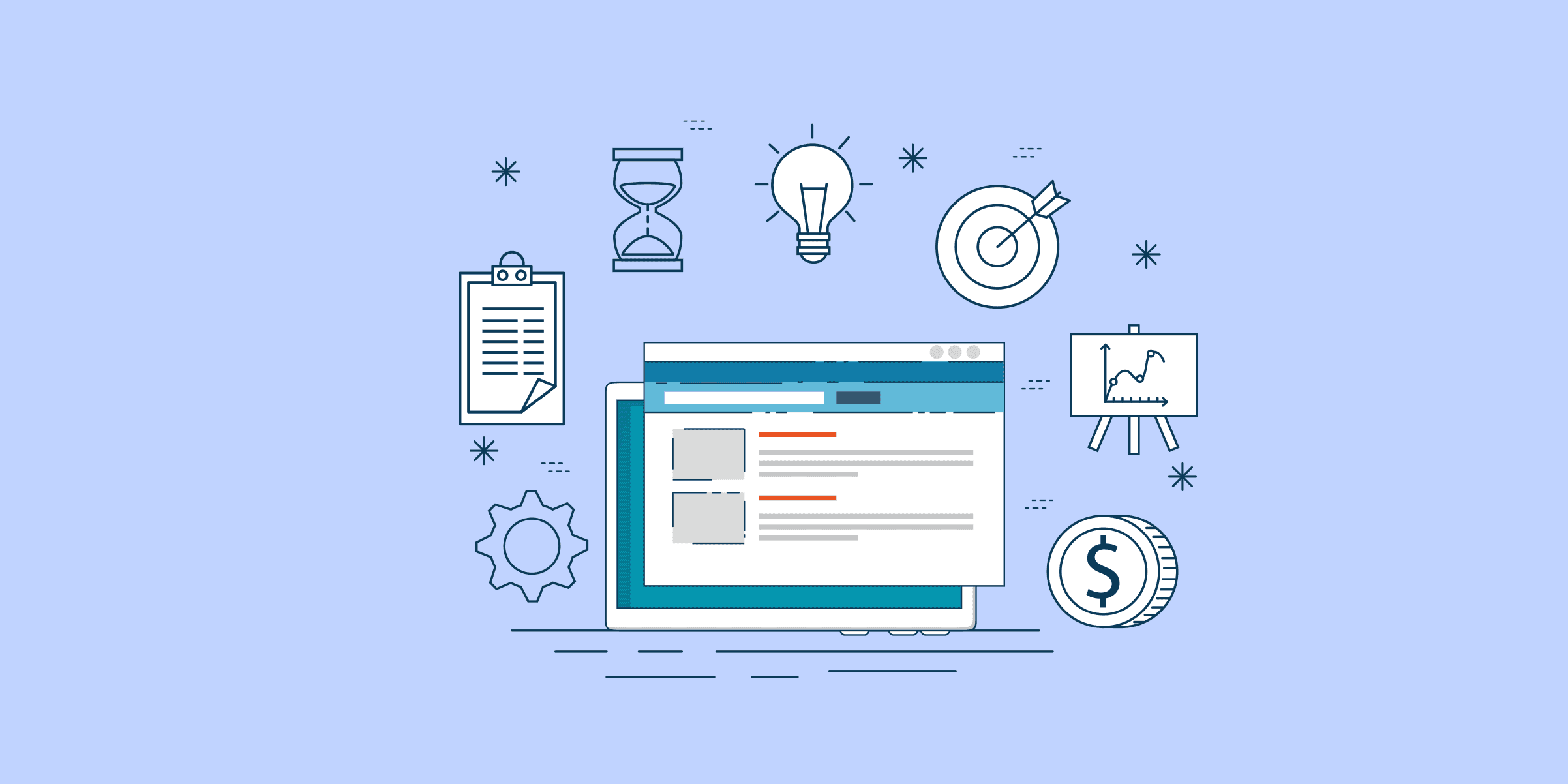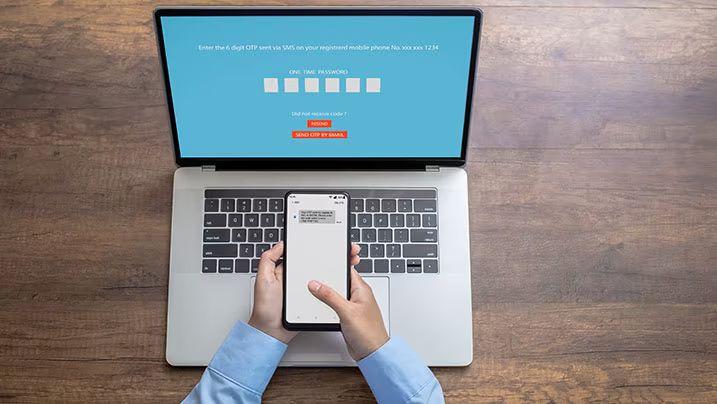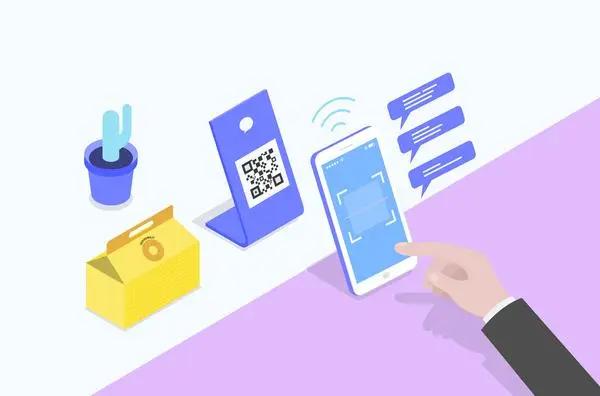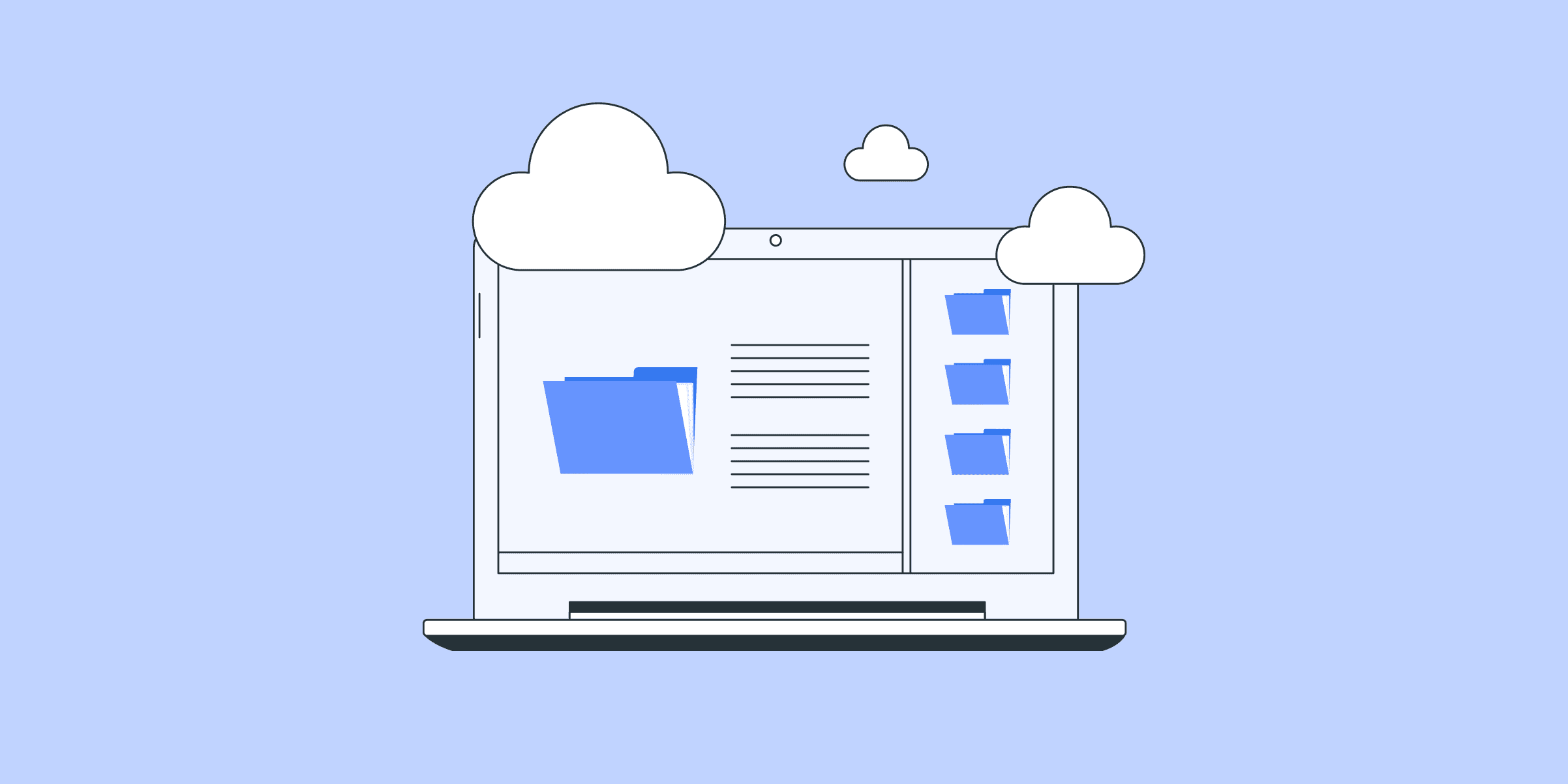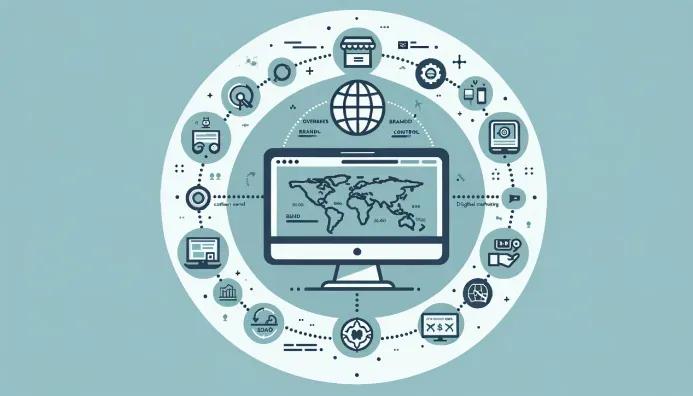
What is Socks5: Everything You Need to Know about Proxy Protocol
Title: What's SOCKS5? A complete guide to understanding the SOCKS5 proxyIntroduction:In the world of online security and privacy, SOCKS5 proxies play a crucial role. If you have heard the term SOCKS5 but are unsure of its meaning and functionality, this blog post aims to give you a comprehensive understanding of what SOCKS5 is and how it can benefit you.What is SOCKS5?SOCKS5 (Socket Secure 5) is an Internet protocol used for proxy servers. It is an extension of previous versions of the SOCKS protocol, providing additional features and security enhancements. SOCKS5 proxies act as intermediaries between your device and the Internet, routing all your Internet traffic through a trusted third-party server.How does SOCKS5 work?Unlike traditional HTTP proxies, SOCKS5 proxies operate at a lower level, providing a more flexible and versatile solution. When you connect to a SOCKS5 server, your traffic is encapsulated in a SOCKS5 protocol wrapper. This wrapper contains the necessary information to route your requests through the proxy server. Once connected, the proxy server acts as an intermediary, forwarding your requests to the destination server and returning the response to you.Key benefits of SOCKS5 proxies:1. Improved security: SOCKS5 proxies provide encryption for your data, making it harder for hackers or government agencies to intercept or track your online activities.2. Improved Anonymity: By masking your IP address, SOCKS5 proxies allow you to browse the Internet anonymously. This is particularly useful when accessing geo-restricted content or circumventing censorship.3. Higher speeds: SOCKS5 proxies generally offer faster speeds compared to other proxy protocols because they operate at a lower level and can handle more concurrent connections.4. Greater compatibility: SOCKS5 proxies can be used with a wide range of applications and protocols, including web browsers, chat clients and torrent clients.Use cases for SOCKS5 proxies:1. Bypassing geo-restrictions: SOCKS5 proxies allow access to geo-restricted content by making it appear as if you are browsing from a different location.2. Torrenting: SOCKS5 proxies are commonly used for torrenting to mask IP addresses and prevent tracking by copyright infringement watchdogs.3. Enhanced privacy: With a SOCKS5 proxy, you can protect your online identity and keep your browsing activities private from ISPs, government surveillance, and malicious actors.4. Test websites and applications: SOCKS5 proxies enable developers and QA teams to test websites and applications from multiple locations, ensuring cross-regional functionality and detecting potential issues.Conclusion:SOCKS5 proxies provide a secure and flexible solution for improving online security and privacy. Whether you want to bypass geo-restrictions, protect your privacy or improve your browsing speed, SOCKS5 proxies are a reliable tool to consider. By understanding the basics of SOCKS5 and its benefits, you can make an informed decision about when and how to use this powerful proxy protocol.

What is SOCKS5: The Ultimate Guide to Understanding and Using SOCKS5 Proxies
What is SOCKS5 and How Does it Work?In the world of networking and internet protocols, there are several tools and technologies that play a vital role in ensuring secure and efficient communication. One such tool is SOCKS5, which stands for Socket Secure version 5. In this blog post, we will delve into the details of SOCKS5, exploring what it is, how it works, and its significance in today's digital landscape.What is SOCKS5?SOCKS5 is an internet protocol that acts as a proxy server, allowing users to establish a secure and private connection to the internet. It is an enhanced version of the previous SOCKS protocol, offering improved security and functionality. With SOCKS5, users can bypass firewalls, access restricted content, and protect their online privacy.How does SOCKS5 work?When a user connects to the internet using a device that supports SOCKS5, the device establishes a connection with a SOCKS5 server. The user's internet traffic is then routed through this server, which acts as an intermediary between the user and the websites they are accessing.To establish a connection, the user's device and the SOCKS5 server perform a handshake, during which they exchange information about their capabilities and authentication credentials. Once the connection is established, the user's device sends its requests to the SOCKS5 server, which then forwards the requests to the appropriate destination on the internet. The server receives the responses from the internet and sends them back to the user's device. This process ensures that the user's IP address remains hidden and their online activities are anonymous.Advantages of using SOCKS51. Bypassing firewalls: SOCKS5 allows users to bypass firewalls that restrict access to certain websites or services. By routing internet traffic through a SOCKS5 server, users can access blocked content without being detected.2. Enhanced privacy: With SOCKS5, users can mask their IP address, making it difficult for websites and online services to track their activities. This protects their privacy and prevents companies from collecting personal data.3. Accessing geo-restricted content: SOCKS5 enables users to access content that is geo-blocked or restricted based on their location. By connecting to a SOCKS5 server in a different country, users can bypass these restrictions and enjoy the content they desire.4. Improved performance: SOCKS5 can enhance the performance of internet connections by caching frequently requested data and reducing latency. This can be particularly beneficial for users in regions with slow internet speeds.5. Compatibility: SOCKS5 is supported by a wide range of devices and operating systems, making it a versatile solution for accessing the internet securely and privately.ConclusionSOCKS5 is a powerful internet protocol that provides users with secure and private access to the internet. By routing internet traffic through a SOCKS5 server, users can bypass firewalls, access geo-restricted content, and protect their online privacy. With its numerous advantages and compatibility with various devices, SOCKS5 is an essential tool for anyone seeking a secure and efficient internet browsing experience.

What is the main thing that online proxy testing checks for? Is it important?
As our digital footprint is everywhere, privacy protection becomes more and more important. And proxies are like our cloak of invisibility, allowing us to walk through the online world unnoticed. However, with the widespread use of proxies comes the emergence of various types of proxies, some of which may not be as good as they should be. This begs the question: how do you ensure that the proxy you are using is stable and reliable? This involves online proxy detection. First, what is online proxy detection? Online proxy detection refers to the use of specific tools or services to conduct various tests and analysis of proxy servers to determine their performance, stability and anonymity and other aspects of performance. This helps users choose the right proxy and avoid using unstable or dangerous proxy servers. Second, the main inspection content Online proxy testing mainly covers the following aspects: 1. IP address consistencyA reliable proxy should be able to maintain the consistency of its IP address, i.e., it will not change frequently over a period of time. frequent changes in IP address may affect the stability of your business, and even be recognized as abnormal activities by some websites. 2. Response speedResponse speed is an important indicator of a proxy, which directly affects your experience on the Internet. Through online proxy detection, you can know whether the response speed of the proxy is stable and can withstand your business needs. 3. Anonymity CheckAnonymity is an important feature of proxies, especially when it comes to sensitive data or privacy protection. Online proxy detection can help you determine whether the proxy really hides your real IP address and prevents websites from tracking you. 4. Proxy type identificationProxies can be categorized into different types, such as transparent proxies, anonymous proxies and high hiding proxies. With online proxy detection, you can identify specific types of proxies to better understand their characteristics and potential problems. 5. Network connectivityA proxy that has frequent connectivity problems will not work properly. Online proxy detection can help you test the network connectivity of the proxy to ensure that the proxy can stably connect to the target server. Third, Why is it important? The importance of online proxy testing can not be ignored, mainly reflected in the following aspects: 1. Ensure business stabilityBy testing the consistency of the proxy's IP address and response speed and other indicators, you can choose a more stable proxy to ensure that your business can be stable, to avoid business interruptions caused by unstable proxies. 2. Improve anonymityIn some cases, anonymity is crucial, especially in terms of privacy protection. Through online proxy testing, you can choose a proxy with good anonymity to better protect your private information. 3. Protect against risksUnstable or insecure proxies may bring various risks, including data leakage, cyber attacks and so on. Online proxy detection can help you identify potential risks and avoid using insecure proxies. 4. Improve efficiencyBy choosing a more responsive proxy, you can browse web pages, download files, etc. on the network faster, thus improving your work efficiency. 5. Cost SavingsThrough online proxy detection, you can avoid purchasing unstable or unsuitable proxies, thus saving money and improving resource utilization. To summarize, online proxy testing is a key step to ensure that you choose the right proxy and safeguard the stability and security of your business. By understanding the proxy's performance in terms of IP address consistency, response speed, anonymity, etc., you can better choose a proxy that suits your needs and improve your network experience and business efficiency.

What is the quality of IP resources from foreign IP proxies? How to judge?
The quality of IP resources of foreign IP proxies is an important factor that affects the experience and effect of using them. For users who want to choose the right foreign IP proxy service provider, it is crucial to understand and judge the quality of IP resources. Here are some indicators and methods to help you judge the quality of IP resources of foreign IP proxies. First, how to judge the quality of IP resources 1. IP stability: IP stability refers to whether the IP address on the proxy server is stable, that is, whether it is frequently replaced or interrupted in the course of use. Stable IP resources can ensure that your Internet connection continues to be stable and will not be interrupted or blocked due to frequent IP replacement leading to access. Understanding the proxy service provider's IP stability record or checking user reviews can help you assess the stability of its IP resources. 2. IP Speed: IP speed refers to the connection speed from your device to the proxy server and the transmission speed from the proxy server to the target website. Quality foreign IP proxy service providers usually provide high-speed connection and fast data transfer to ensure smooth web experience and efficient data crawling. You can try to use the trial version of the proxy service provider or refer to the user reviews to get an idea of its IP speed. 3. IP verification and privacy protection: An important indicator is to make sure that the IP address provided by the proxy service provider is real and valid. Using an illegal or invalid IP address may result in restricted access or being blocked, which may affect your work or business. In addition, privacy protection is also a key factor. Proxy service providers should protect users' private information and comply with relevant privacy policies and regulations. 4. IP Geolocation Accuracy: IP proxy geolocation accuracy is important for specific application scenarios. For example, if you need to simulate access to a specific country or region, the IP address provided by the proxy service provider should match your target geographic location. You can determine the accuracy of the IP address provided by the proxy service provider by testing how well it matches the actual geographic location. 5. Purity of the IP address: Purity refers to the quality and reputation of IP addresses, i.e. whether they are subject to abuse, spamming or malicious behavior. Using an abused IP address may result in restricted access or blocking, so choosing an IP address with a high degree of cleanliness reduces risk and ensures that your online activities run smoothly. Proxy service providers should have an effective mechanism to monitor and manage the cleanliness of their IP addresses. 6. Availability and scarcity of IP addresses: IP address resources may be scarce in some areas because there is a limited supply of IP addresses. IP addresses for particular geographic locations or specific requirements may be even more scarce, which may make them more expensive or difficult to obtain. Therefore, when evaluating the quality of the foreign IP proxy's IP resources, you need to consider the availability and scarcity factors and ensure that you are able to obtain the IP addresses you need. 7. Size and diversity of the IP pool: A quality foreign IP proxy service provider will usually have a large and diverse IP pool. This means that they offer a large number of IP addresses and cover a wide range of geographic locations and ISPs. Such an IP pool can provide more choices and better flexibility to meet the needs of different users. Second, why is the quality of 911proxy's IP resources good? 1. Multi-geographic coverage: 911proxy has a wide range of IP address resources worldwide, covering many countries and regions. Their IP addresses come from different geographic locations, providing diversity and flexibility, enabling users to choose geographically specific IP addresses that suit their needs. 2. High-speed and Stable Connections: 911proxy's IP addresses have excellent connection speed and stability. They utilize high-performance hardware devices and network infrastructure to ensure that users have access to fast and reliable network connections, providing efficient data transfer and a smooth network experience. 3. Pure IP resources: 911proxy attaches great importance to the quality and purity of IP resources. They regularly monitor and screen IP addresses to ensure they are free from abuse, spam or malicious behavior. This helps to minimize the risk of access restrictions and blocking and ensures that users can conduct their online activities safely. 4. Massive IP Pool: 911proxy has a huge pool of IP addresses containing a large number of IP addresses for users to choose from. This allows users to easily switch between IP addresses as needed, ensuring that their network activities can run smoothly and are not limited by IP resources. 5. Professional Technical Support: 911proxy provides a professional technical support team that is always ready to answer user questions and provide assistance. Whether it is IP settings, configuration or network connection problems, users can get timely and effective support to ensure that they can fully utilize the quality IP resources provided by 911proxy. By taking the above indicators into consideration, you can more accurately judge the quality of IP resources of foreign IP proxies and choose the proxy service provider that best suits your needs. Before making a decision, it is recommended to try it for a period of time to understand its performance and reliability, so as to ensure that you can get high-quality IP resources and a good experience of using it.
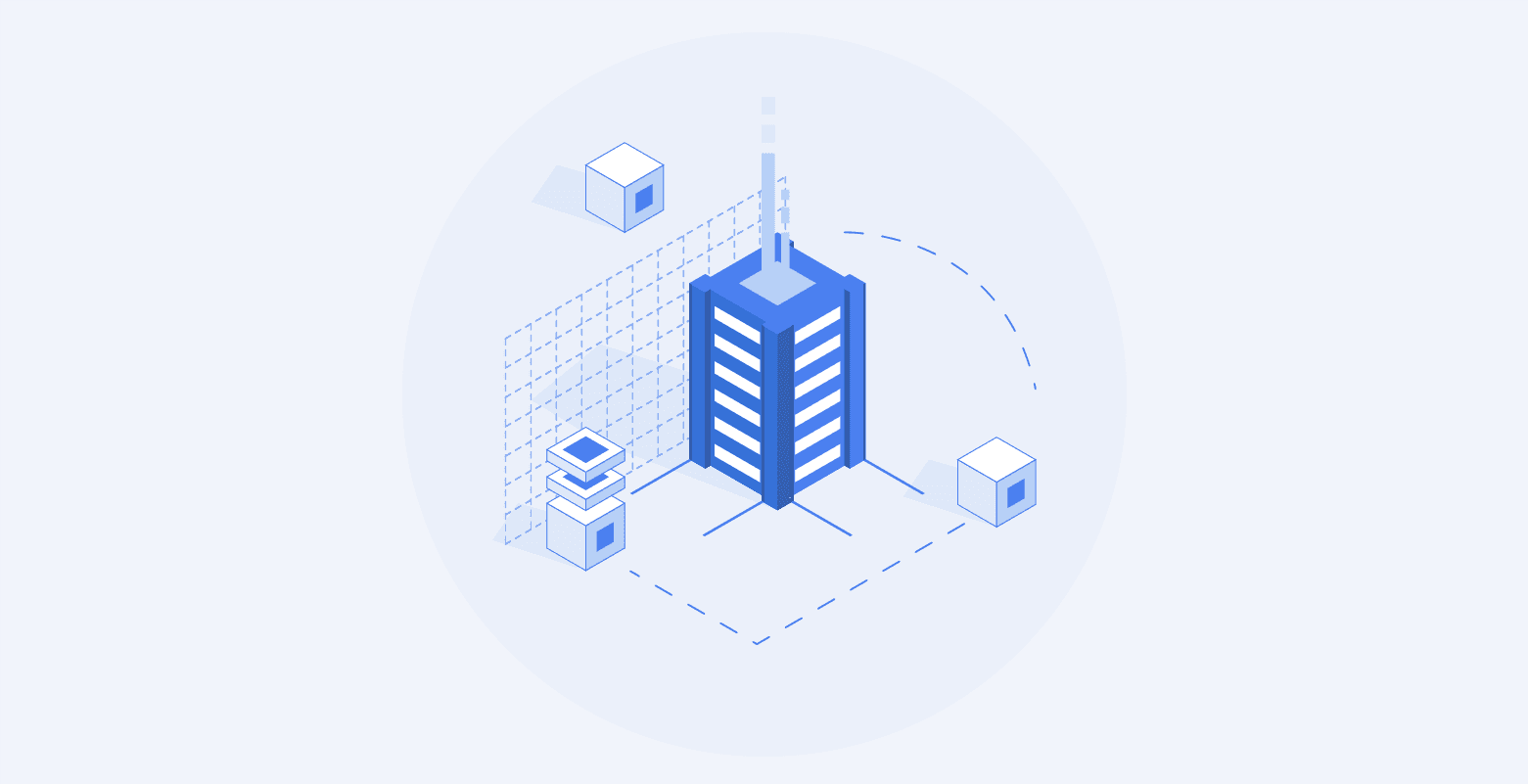
What is the relationship between concurrency, multithreading and HTTP connections?
In the computer field, "concurrency", "multithreading" and "HTTP connections" are three important concepts, and there is a close relationship between them. In this article, we will discuss the connection between these three and their role in modern computer systems. I. The concept of concurrency Concurrency is the ability of a system to handle multiple tasks or events simultaneously. In computing, this means that the system is able to process multiple tasks in the same time period rather than executing them one after the other in a strict order. Concurrency improves the efficiency and resource utilization of a system, thus better meeting the needs of the user. In modern applications, users may perform multiple operations at the same time, such as browsing web pages, downloading files, sending messages, etc. at the same time, which requires the system to have concurrent processing capabilities. II.The role of multi-threading Multithreading is a way to achieve concurrency. Thread is the smallest execution unit in the operating system, and a process can contain multiple threads. Each thread can perform different tasks independently, allowing multiple tasks to be performed concurrently. Multi-threading helps to improve the responsiveness and performance of an application, especially in a multi-core processor environment, where threads can be executed in parallel on different cores, thus utilizing hardware resources more efficiently. Multi-threading can play an important role in processing HTTP requests. When a user sends an HTTP request to the server, the server needs to process the request and return the corresponding data. If the server uses a single thread to process all the requests, then each request needs to wait for the previous request to be processed before it can be responded to, which will lead to longer response time and worse user experience. The use of multi-threading allows the server to handle multiple requests at the same time, improving response speed and maintaining high concurrency performance of the system. III. The significance of HTTP connections HTTP connections refers to the number of HTTP connections established with the server at the same time. In modern Web applications, browsers and servers communicate with each other via the HTTP protocol. When a user visits a Web site, the browser establishes an HTTP connection with the server to request Web page content, including HTML, CSS, JavaScript, and so on. As more resources are added to the web page, the browser may initiate multiple HTTP connections at the same time to speed up page loading. The number of HTTP connections is closely related to concurrency and multithreading. If the server has a low limit on the number of HTTP connections, even if the concurrency of multithreading is high, the system performance will be affected because of the limited number of connections processed at the same time. On the contrary, if the server can support more HTTP connections, multithreading can function more fully and improve the concurrent processing capability of the system. IV. Relationship and Impact In modern Web applications, there is a close relationship between concurrency, multithreading, and the number of HTTP connections. Multi-threading can increase the concurrent processing capacity of the system, improve response speed and performance. The number of HTTP connections, on the other hand, determines the number of requests that the server can handle at the same time, which in turn affects the concurrent processing. However, it should be noted that too many threads and connections may also lead to resource competition, excessive memory consumption, context switching, and other problems, which ultimately affect system performance. Therefore, when designing and developing applications, it is necessary to set the number of multithreads and the number of HTTP connections reasonably to balance the relationship between performance and resource consumption. V. Summary In modern computer systems, concurrency, multithreading and number of HTTP connections are important concepts that cannot be ignored. They are interrelated and jointly affect the system performance and user experience. Through the reasonable use of multithreading technology, the concurrent processing capability of the system can be improved; and the appropriate adjustment of the number of HTTP connections can better support the high concurrency performance of the system. In application design, these factors need to be considered comprehensively in order to build an efficient and stable system that meets the needs of users.
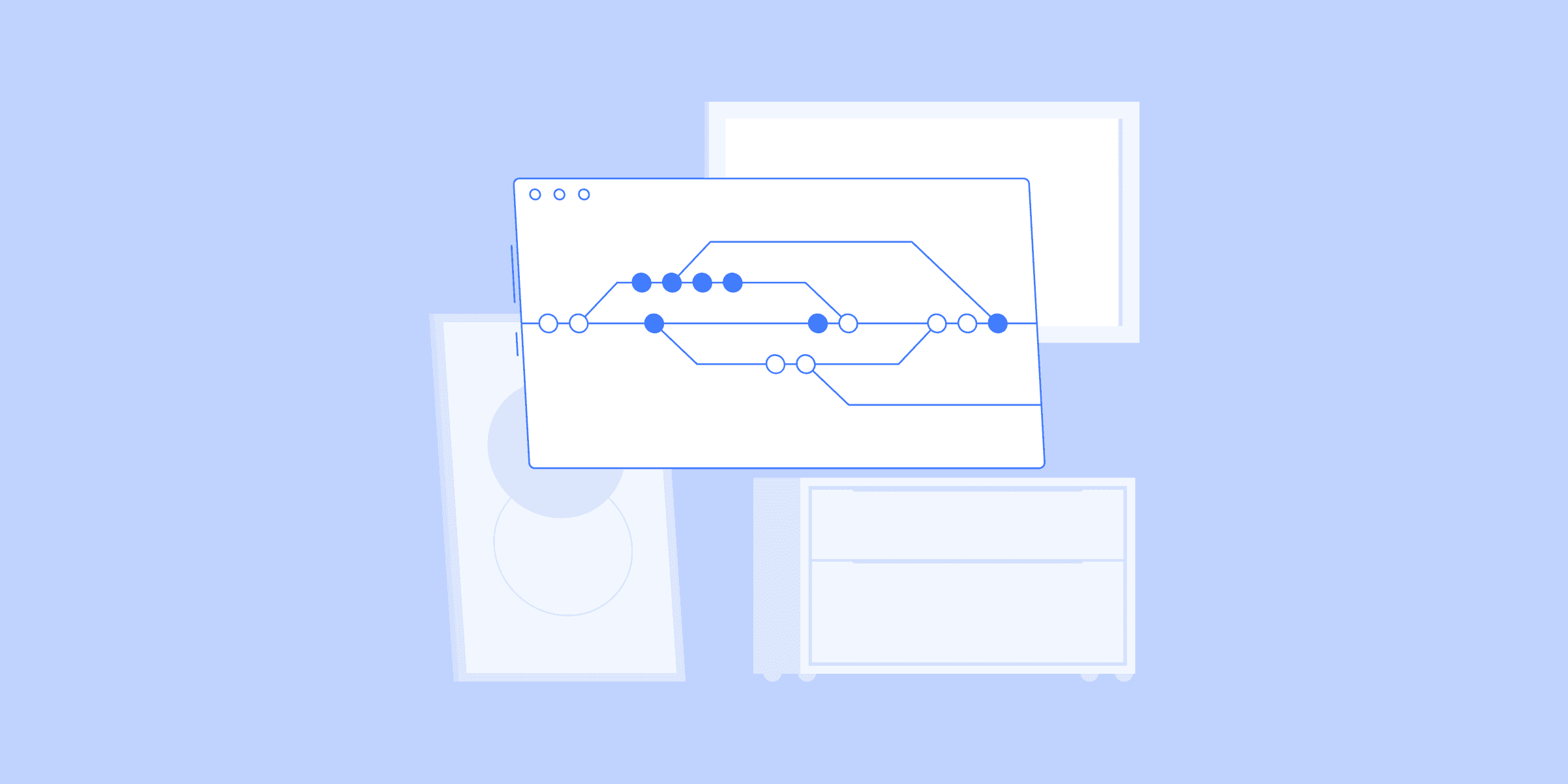
What is the Tunnel proxy? How does it work?
Tunnel proxies, as a form of web proxy, have come to play an important role in the modern Internet world. Whether it's protecting privacy, accessing restricted websites, or enabling the secure transmission of network traffic, tunneling proxies play an important role. In this paper, we will delve into the concept of tunneling proxies, how they work, and how they are used in different scenarios. I. Concept of Tunneling Proxy Tunneling proxy is a technology that transmits data by creating a secure communication channel over a public network. It creates a "tunnel" between the source and the target, encrypting, encapsulating and transmitting data to ensure data confidentiality and integrity. Tunnel proxies can be used for different communication protocols, such as HTTP, HTTPS, TCP, etc., so that data can be securely transmitted over public networks. II. How Tunneling Proxies Operate The operation of the tunnel broker can be simply divided into the following steps: 1. Encryption and Encapsulation: The tunnel broker will first encrypt the data to be transmitted to ensure that the data will not be eavesdropped or tampered with during transmission. Then, it encapsulates the encrypted data in a specific communication protocol, such as HTTP or TCP. 2. Establishment of Tunnel: The tunnel broker establishes a virtual channel between the source and the target, which is called a "tunnel". All data transfers will take place through this tunnel. 3. Data Transmission: Once the tunnel is established, data is transmitted through the encrypted channel. This makes it difficult to intercept or decrypt the data, even on a public network. 4. Decryption and Decapsulation: At the target end, the tunnel proxy decrypts and decapsulates the received data back to the original data. This ensures the integrity and readability of the data. III. Application of Tunneling Proxy As a network proxy technology, tunneling proxy has a wide range of application scenarios and can play an important role in many different situations. The following are some common applications of tunnel proxies: 1. Privacy protection: Tunneling proxies can encrypt a user's network traffic to prevent third parties from stealing sensitive information. This is essential for protecting personal privacy, preventing data leakage, and avoiding surveillance. 2. Breaking blockades: In some countries or regions, governments may restrict or block access to specific websites or services. Tunneling proxies can help users bypass these blockades and access blocked content. 3. Accessing Restricted Resources: Some network resources may have restricted access based on geographic location or IP address. Tunneling proxies allow users to choose a different geographic location to access restricted resources. 4. Secure Remote Access: Organizations can use tunneling proxies for secure remote access. Employees can connect to the company's internal network through tunneling proxies to securely access company resources from outside. 5. Firewall traversal: In some network environments, firewalls may restrict specific network traffic. Tunneling proxies can help bypass these restrictions and allow users to access content that is restricted by firewalls. 6. Anonymous Internet access: Tunneling proxies can hide a user's real IP address, thus enabling anonymous Internet access. This is important to protect personal identity and privacy. 7. Encrypted Data Transmission: When transmitting sensitive data over the Internet, tunneling proxies can ensure encrypted data transmission, preventing data from being intercepted or tampered with during transmission. 8. Bypassing Restrictions: Some network services may have restrictions on concurrent connections, frequency of access, etc. Tunneling proxies can help to bypass these restrictions. Tunneling proxies can help bypass these restrictions to use network resources more efficiently. To summarizeAs a network proxy technology, tunneling proxy plays an important role in protecting privacy, breaking through blockades, and securely accessing internal networks. It ensures secure transmission of data by encrypting and encapsulating data and establishing a secure communication channel. Both individual users and enterprises can choose to use tunnel proxy to realize more secure and convenient network communication according to different needs. While protecting personal privacy, tunnel proxy also provides more data security for enterprises.

What is VPS? What is the difference with Proxy IP?
VPS and Proxy IP are two common concepts in the field of networking and servers. They differ in functions and applications. This article will introduce the definition, characteristics and differences between VPS and Proxy IP. I. VPS VPS is a virtualization technology that allows multiple virtual servers to run on a single physical server. Each VPS is a separate, isolated environment with its own operating system, disk space, memory, and processor resources.VPSs are usually created and managed by virtualization software (e.g., VMware, VirtualBox, KVM, etc.). The main features of VPS include: ① Independence: Each VPS is a separate server instance, isolated from other VPS and not interfering with each other.② Customizability: You can customize the VPS environment by choosing the operating system, applications and configurations according to your needs.③ Flexibility: VPS provides flexible resource allocation and expansion options, allowing memory, storage and processing power to be adjusted as needed.④ Security: Since each VPS is independent, they are relatively secure from each other and will not be affected by other VPS.⑤ Stability: The resources of a VPS are allocated independently and are not affected by other users, thus providing more stable performance and reliability.⑥ VPS is mainly used for hosting websites, running applications, storing data and various other Internet services. It provides a higher level of flexibility and autonomy and is suitable for users who require a higher level of control and resource allocation. II. Proxy IP Proxy IP is a way to connect and communicate over the Internet through an intermediate server. When you use Proxy IP, your web requests will pass through the proxy server, which then forwards them to the target website or server. The proxy server acts as an intermediary, acting as a bridge between you and the target server. The main features of proxy IP include: ① Hiding real IP: Proxy servers hide your real IP address, making your network traffic appear to come from the proxy server's IP address.② Bypass Restrictions and Blocking: By using a proxy IP, you can bypass geo-restrictions, IP blocking and network censorship to access restricted content or services.③ Provide anonymity: Proxy IP can provide you with a degree of anonymity and privacy protection by hiding your identity and location information.④ Data filtering and modification: Some proxy servers provide data filtering and modification functions, which allow you to screen, modify or encrypt transmitted data. Proxy IP are widely used in scenarios such as web crawlers, data collection, network security testing, and accessing restricted content. They can change your IP address to allow you to operate under a different identity and location on the network. Differences and application scenarios: Third, VPS and Proxy IP differ in function and application: 1. Different functions: VPS is a virtual server that provides a complete server environment for hosting websites, running applications, and so on. Proxy IP is a network tool used to hide the real IP, bypass restrictions and provide anonymity. 2. Different independence: VPS is an independent virtual server instance with its own resources and environment. Proxy IP uses a proxy server where multiple users share the same IP address and resources. 3. Differences in control: VPS provides a higher level of control and customization options, you can freely configure and manage the server. Proxy IP control is usually managed by the proxy service provider, and the user has no control over the proxy server settings. 4. Different application scenarios: VPS is suitable for hosting websites, running applications and other scenarios that require a complete server environment. Proxy IP is suitable for scenarios where you need to hide your real IP, bypass geographic restrictions or access restricted content. To summarize, VPS and Proxy IP differ in terms of features, independence, control and application scenarios. Choosing which one to use depends on your specific needs and application scenarios. If you need a complete server environment and a higher level of control, VPS is a more appropriate choice. If you need to hide your real IP and bypass restrictions for some business activities such as big data collection or overseas marketing, proxy IP is a more suitable choice. Depending on your needs, choosing the right technology tool will better fulfill your needs and goals.

What Makes a Good Proxy: Understanding the Essentials
Title: Understanding the importance of a good proxy in SEOIntroduction:In the world of Search Engine Optimisation (SEO), having a good proxy is essential to achieving success. A proxy acts as an intermediary between your device and the internet, allowing you to mask your IP address and access the web using a different IP. In this blog post, we will explore the reasons why a good proxy is crucial for SEO and how it can benefit your online marketing efforts.1. Ensure anonymity and security:One of the main reasons to use a proxy for SEO is to ensure anonymity and security. By using a proxy, you can hide your real IP address from search engines, competitors and other prying eyes. This protects your online activities and prevents anyone from tracking your SEO strategies or gathering information about your website.2. Access to geographically restricted content:As an SEO professional, you may need to access geographically-restricted content to gain valuable insight or perform competitive analysis. A good proxy allows you to choose the location of your IP address, so you can access region-specific data and optimise your SEO strategy accordingly.3. Get around IP blocking and captchas:In SEO, dealing with IP blocking and captchas can be frustrating and time consuming. IP blocking occurs when search engines or websites restrict access to certain IP addresses due to suspicious or excessive activity. By using a good proxy, you can change your IP address and bypass such restrictions, allowing you to continue your SEO activities without interruption.4. Collect accurate data:Accurate data is the backbone of any successful SEO campaign. However, search engines often personalise search results based on IP addresses, making it difficult to collect unbiased data. With a good proxy, you can simulate searches from different locations, ensuring that the data you collect is not affected by personalisation or local bias. This will give you a more accurate picture of how your site performs in different regions.5. Scalability and account management:For certain SEO tasks, such as link building or social media engagement, it is essential to manage multiple accounts without raising suspicion. Using a good proxy allows you to assign a unique IP address to each account, making it easier to manage and scale your SEO efforts without worrying about your accounts being banned or flagged.6. Ad verification and competitive analysis:A good proxy can also be used for ad verification and competitor analysis. By using a proxy, you can see how your ads appear in different geographical locations or check how your competitors' sites perform in different markets. This information can help you make informed decisions and refine your SEO strategies to stay ahead of the competition.The bottom line:In conclusion, a good proxy is an essential tool for any SEO professional. It provides anonymity, security, access to geographically restricted content and the ability to collect accurate data. Using a good proxy can greatly enhance your SEO efforts by making it easier to manage multiple accounts, bypass IP blocking and gain insight into your competitors' strategies. So if you are serious about optimising your website and staying ahead in the SEO game, investing in a good proxy is essential.

What to look for in a beginner Python crawler
With the advent of the digital era, network data has become increasingly rich and valuable. And Python, as a powerful and easy-to-follow programming language, has become the tool of choice for many beginners for web data collection (crawling). However, learning Python crawler for the first time is not an easy task and requires facing a series of challenges and technical difficulties. In this article, we will discuss the issues that beginner Python crawlers need to pay attention to, as well as introduce how to improve the effectiveness of the crawler through overseas residential proxies. I. Understanding website rules and privacy policies Before you start crawling a website's data, it is crucial to understand the site's rules and privacy policy. Many websites have anti-crawling mechanisms that will limit too frequent requests or take other means to stop the crawler. Follow the site's rules and set appropriate crawling intervals to avoid unnecessary burden on the target site. II. Choose the appropriate crawler framework and library Python provides numerous excellent crawler frameworks and libraries, such as Beautiful Soup, Scrapy and so on. Choose the right tool can significantly improve the efficiency and maintainability of the crawler. These tools provide functions such as parsing HTML, processing data, building requests, etc., making crawler development more convenient. III. Dealing with anti-climbing mechanism Many websites will adopt anti-climbing mechanisms, such as limiting the frequency of IP access, using CAPTCHA, and so on. To deal with these challenges, beginners can adopt some simple methods, such as setting appropriate request headers, using proxy IP, and so on. Overseas residential proxies are a useful option to provide different IP addresses for crawlers and reduce the risk of being blocked by target websites. IV. Data Cleaning and Processing The data obtained by the crawler often needs to be cleaned and processed for subsequent analysis and application. Beginners should learn to use regular expressions, string processing functions and other methods to transform the crawled data into structured information. V. Respect the copyright of the website and data When crawling website data, be sure to respect the copyright and ownership of the website. Avoid using the crawled data for commercial purposes or infringing on the rights of others. Before using the data, it is best to understand the relevant laws and regulations and the terms of use of the website. VI. Learning about network security and privacy protection Crawlers may involve network security and privacy issues. Beginners need to learn how to write secure code to avoid exposing sensitive information or putting the system at risk. In addition, crawling personal information and other privacy content is not allowed, and you need to follow the relevant laws and regulations. VII. Practice and continuous learning Most importantly, beginners should keep practicing and learning. Master more crawling skills and experience by doing more projects. At the same time, pay attention to the latest developments in the crawler field, understand new technologies and tools, and maintain their learning curve. VIII. The importance of residential IP for crawlers Crawlers play an important role in network data collection, however, it often faces various challenges, including anti-crawler mechanism of websites, limiting access frequency, etc. This is why crawlers need the assistance of residential IP: 1. Anti-Crawler Mechanisms: Many websites adopt anti-crawler mechanisms to limit too frequent requests. They may detect that the same IP address is sending a large number of requests in a row and recognize it as a crawler, and then take measures to block or restrict it. The use of residential IP can reduce the probability of being identified as a crawler, because these IP are more similar to the access behavior of ordinary users. 2. IP Blocking: If a crawler sends a large number of requests from a single IP address, the website may blacklist that IP address, making further access impossible. The use of residential IP can avoid the blocking of a single IP, because residential IP is used in a more decentralized way, and is not easy to be identified by the website as abnormal behavior. 3. Geographic location restriction: Some websites may restrict access based on the geographic location of the IP address, for example, restricting access to specific countries or regions. If you need to access overseas websites, using an overseas residential IP can simulate a real geographic location and gain freer access. 4. Anonymity and Privacy: Using a proxy IP can improve the anonymity of the crawler by not exposing the real IP address. This is very important in some scenarios where you need to protect privacy, especially when you need to collect data from some sensitive websites. 5. Stability and Reliability: Residential IP are usually more stable and reliable than data center or public proxy IP. Data center IP may be shared by multiple users and easily blocked, while residential IP are closer to real users and more stable. Overall, crawlers need the assistance of residential IP in order to bypass anti-crawler mechanisms and reduce the risk of being blocked, while improving the anonymity and privacy protection of the crawler. This allows crawlers to collect data more efficiently while maintaining compliance and reliability.

What You Get for Your Money: Paid Proxies vs. Free Options
What You Get for Your Money: Paid Proxies vs. Free Options Proxies are a crucial tool in today's digital landscape, enabling users to browse the internet anonymously, access geo-restricted content, and maintain security and privacy online. However, when it comes to proxies, one of the fundamental questions users face is whether to opt for paid services or free options. In this comprehensive guide, we'll explore the key differences between paid proxies and free options, helping you make an informed decision that aligns with your needs and budget. Free ProxiesFree proxies are everywhere, and they come in various types. Some are integrated into software to enhance its features, while others manage access to specific services or websites by balancing traffic. However, relying solely on free proxies may not solve your personal needs, especially if they involve commercial activities. If this trend continues, the availability of free proxies might decrease, leaving mostly basic server proxies. Finding free residential or mobile proxies, which are often the most reliable for tasks like data parsing, would become incredibly challenging. Free Proxies Advantages The primary benefit of using free proxy serversis that they are cost-free, eliminating the need for payment and enabling significant savings without any rent investment. This aspect stands as a reasonable proposition without requiring further argumentation. Similar to paid proxies, free options also allow users to select addresses from desired locations. Specialized services exist to simplify this process by filtering free proxies based on geographic location server type, and anonymity levels. Furthermore, free proxies serve as a preliminary evaluation tool for paid services. This permits users to assess the quality, functionality, and reliability of proxies before committing to payment, providing a risk-free introduction to proxy usage. Free Proxies Drawbacks Finding fast, anonymous, and reliable free proxies is often challenging, if not nearly impossible. The bandwidth of free proxies diminishes quickly due to high demand, rendering them practically unusable. The search for functional free proxies can be time-consuming, undermining the supposed savings they offer. In business, time equates to money, necessitating either dedicated effort in finding proxies independently or the expenditure on specialist services. Connection stability is typically poor with free proxies. Even if a proxy worked recently, it may currently be overloaded or offline, making its reliability unpredictable. As many free proxies operate from servers, their IP addresses are susceptible to being easily identified and blocked by anti-fraud systems. This leads to additional hurdles, such as solving captchas or waiting for block removal. The level of confidentiality provided by free proxies is notably low and cannot be reliably verified. Even proxies marketed as anonymous may still compromise user privacy by logging requests and potentially selling personal data to third parties. Paid Premium Proxies In contrast, paid proxies are predominantly provided by reputable service providers. Beyond data center proxies, many of these premium providers collaborate with internet service providers across various countries to deliver residential proxies tailored to different geographic regions. Paid Proxies AdvantagesReliability Paid proxies offer the advantage of private access exclusively for the user, as opposed to being shared with others. For example, a residential proxy, which is a paid private proxy, obtains its IP address from real user electronics connected to its home network. This arrangement allows the proxy user to appear as another genuine user from a different location, preventing websites from blocking access. Additionally, paid proxies regularly rotate their IP addresses to ensure consistent functionality, guaranteeing reliability for users with each use.Security Paid proxies provide enhanced security for users' online data, safeguarding sensitive information such as credit card numbers and geographic location. According to an IBM report, the worldwide average expense of a data breach reached $4.45 million in 2023, marking a 15% escalation over the preceding three years. Only the proxy provider has access to this data, and they are bound by stringent online protection laws. Paid proxies are sourced from a premium selection of IP addresses that are not blacklisted by websites (they are whitelisted), ensuring reliability and security.Privacy Paid proxies play a crucial role in enhancing online privacy by concealing the user's identity and providing the flexibility to choose the geographic location of the alternative IP address. If you are searching for the cheapest online doctoral programs and you want to hide your identity or location, the paid proxy is a better option. Many providers offer a wide array of residential IPs, allowing users to specify the desired location of the IP address. These features not only ensure enhanced privacy but also provide peace of mind, enabling users to remain anonymous while browsing the internet, surpassing the capabilities of free proxies. Connectivity speed Another significant benefit of using paid proxies is the swift connection speed when accessing websites. Unlike free proxies, which share IP addresses with numerous other internet users, paid proxies offer private connections exclusive to the individual user. This exclusivity eliminates any delays in accessing websites or applications, as well as the initial connection to a proxy server, making paid proxies the faster option for seamless browsing. Customer support Round-the-clock customer support is not just an expectation but a standard for paid proxy services. Many providers offer on-demand customer service through various channels, including email and chat support, ensuring that users receive assistance whenever needed. Paid Proxies Disadvantages The pricing of proxy services correlates with their quality and demand; hence, higher-quality and more sought-after services tend to come at higher prices. Services like rotary mobile or residential proxies are often charged based on the volume of transmitted traffic, which can significantly impact any budget due to the absence of limits and high speeds. While proxies may offer high levels of anonymity, they cannot conceal traffic unless encrypted tunnels are utilized, a feature typically found in VPN services. However, VPNs may not be suitable for bulk tasks. Certain technical intricacies are inherently tied to the type of proxy being used, regardless of whether they are paid or free. For instance, it's not possible to enhance the speed of a mobile proxy channel or ensure a stable connection on residential IPs, as they tend to have short life cycles and actively rotate. Final thoughtsThe choice between free and paid proxies depends on several factors, including your budget, internet activities, and security requirements. A free proxy may be a good option if you are an individual or a business with a limited budget. However, it may be worth considering paid data center proxies if you require fast, reliable, and secure internet access for more advanced internet activities. Ultimately, the best option will depend on your specific needs and requirements, so choosing a proxy provider to help you hide your identity and that meets your needs is essential.

What's a Proxy and How Does It Work: Explained
What's a Proxy: A Comprehensive Guide to Understanding ProxiesIntroduction to ProxiesIf you’ve been hearing the term "proxy" thrown around but find yourself unsure of what it actually means, you’re not alone. Many people are unfamiliar with proxies and how they work. In this blog post, we will delve into the world of proxies, explaining what they are, how they function, and their relevance in today’s digital landscape.What is a Proxy?A proxy is an intermediary server that acts as a bridge between your device and the internet. When you request information or access a website, the proxy server receives the request on your behalf and forwards it to the destination. In other words, a proxy stands between you and the content you are trying to access, allowing you to browse the web anonymously and securely.Types of ProxiesThere are several types of proxies, each with its own unique features and purposes. Let's explore some of the most common types:1. HTTP Proxies: These proxies are primarily used for web browsing and are compatible with HTTP-based websites. They can cache web pages, acting as a buffer between your device and the internet, resulting in faster load times.2. SOCKS Proxies: SOCKS (Socket Secure) proxies work at a lower level than HTTP proxies. They can handle various types of internet traffic, including email, file transfers, and instant messaging. SOCKS proxies are known for their versatility and compatibility.3. Residential Proxies: These proxies use IP addresses provided by Internet Service Providers (ISPs) and are considered more legitimate than data center proxies. Residential proxies offer higher anonymity and are ideal for tasks where trust and credibility matter.4. Data Center Proxies: Data center proxies are not associated with ISPs and instead originate from data centers. They are often used for tasks that require high-speed connections and large amounts of bandwidth, such as web scraping.Why Use a Proxy?There are several reasons why individuals and businesses choose to use proxies:1. Anonymity: When you use a proxy, your real IP address is hidden, and the website you visit sees the IP address of the proxy server instead. This allows you to browse the web anonymously, protecting your identity and privacy.2. Security: Proxies act as a barrier between your device and the internet, providing an additional layer of security. They can filter out malicious websites, block unwanted content, and protect against cyber threats.3. Bypassing Restrictions: Proxies can bypass geographic restrictions and censorship imposed by certain websites, allowing users to access content that may be blocked in their region.4. Web Scraping: Data center proxies are often used for web scraping, a technique employed to extract data from websites. With web scraping, businesses can gather valuable information for market research, competitor analysis, and more.ConclusionIn conclusion, proxies play an integral role in today’s digital landscape. Whether you are looking to enhance your privacy, bypass restrictions, or perform web scraping tasks, a proxy can be a valuable tool. With a better understanding of what a proxy is and how it functions, you can make informed decisions about when and why to utilize this technology.

What's a Proxy Server Address? A Brief Introduction to Proxy Server Addresses
What's a Proxy Server Address and How Does it Work?In today's digital age, online privacy and security have become paramount concerns for internet users. Internet Service Providers (ISPs), government agencies, and even malicious hackers are increasingly monitoring and tracking our online activities. To combat these issues, many individuals and businesses turn to proxy servers to protect their privacy and improve their online experience. In this blog post, we will explore what a proxy server address is, how it works, and the benefits it offers.1. What is a Proxy Server Address?A proxy server acts as an intermediary between a user's device and the internet. It acts on behalf of the user by receiving and sending data between the user and the requested website. A proxy server address is the unique identifier that allows users to connect to a specific proxy server.2. How Does a Proxy Server Work?When a user makes a request to access a website, the request is first sent to the proxy server. The proxy server then forwards the request to the website on behalf of the user. The website responds to the proxy server, which in turn sends the response back to the user. This process creates an additional layer of protection and anonymity for the user.3. Types of Proxy ServersThere are different types of proxy servers that serve various purposes. Some of the popular types include:- Transparent Proxy: This type of proxy server does not alter the user's IP address and is mainly used for caching purposes.- Anonymous Proxy: As the name suggests, an anonymous proxy server hides the user's IP address, making it difficult for websites to track their online activities.- High Anonymity Proxy: This type of proxy server not only hides the user's IP address but also does not disclose the fact that a proxy server is being used. It provides the highest level of privacy and anonymity.- Reverse Proxy: A reverse proxy server sits between a user and multiple web servers, acting as a gateway and distributing incoming requests.4. Benefits of Using a Proxy Server- Anonymity: By using a proxy server, users can hide their IP addresses and protect their online identity.- Access Control: Proxy servers can restrict access to certain websites or content, ensuring users adhere to company policies or comply with regional restrictions.- Improved Performance: Proxy servers can cache and compress data, leading to faster load times and improved browsing experience.- Security: Proxy servers act as a barrier between users and potentially harmful websites or network attacks, providing an additional layer of security.5. Setting Up a Proxy Server AddressSetting up a proxy server address varies depending on the device and operating system you are using. Generally, you can find proxy server settings in the network or internet connectivity options. You will need to enter the proxy server address and port number provided by your proxy service provider.In conclusion, a proxy server address is a unique identifier that allows users to connect to a proxy server, acting as an intermediary between the user's device and the internet. By using a proxy server, users can enhance their privacy, security, and browsing experience. Whether you are concerned about online privacy or want to access restricted content, a proxy server can be a valuable tool in today's digital landscape.

What's a Proxy: Everything You Need to Know about Proxies
What's a Proxy and How Does It Work?In today's digital world, protecting our online privacy has become increasingly important. One of the tools that can help us achieve this is a proxy. So, what exactly is a proxy and how does it work? In this blog post, we will explore the concept of proxies and their role in internet security.A proxy acts as an intermediary between a user and the internet. When you connect to the internet through a proxy server, your internet traffic is routed through the server before reaching its destination. This means that your IP address, which is a unique identifier associated with your device, is masked, making it difficult for websites or online services to track your online activities.Proxies serve multiple purposes, but one of the main reasons people use them is to bypass restrictions imposed by network administrators or internet service providers. For example, if you are trying to access a website that is blocked in your country, you can use a proxy server located in a different region to access the content. The website will see the IP address of the proxy server instead of your actual IP, allowing you to bypass the restrictions.There are several types of proxies available, including:1. Web proxies: These are accessed through a web browser and are usually free. They allow you to browse the internet anonymously by hiding your IP address.3. Residential proxies: These proxies use IP addresses assigned to regular home internet users, making them more difficult to detect and block. They are commonly used for web scraping, ad verification, and market research.4. Dedicated proxies: These proxies provide a dedicated IP address that is not shared with other users. They are often used for tasks that require a high level of anonymity and security, such as accessing restricted content or conducting sensitive online transactions.Now that we understand what a proxy is and the different types available let's explore how they work. When you connect to the internet through a proxy server, your request is sent to the server instead of directly to the website or service you are trying to access. The proxy server then forwards your request to the destination and relays the response back to you.This process allows the proxy server to act as a middleman, intercepting and filtering incoming and outgoing traffic. Proxies can be configured to block or allow certain types of content, providing an additional layer of security by filtering out potentially harmful or malicious websites. They can also cache data, storing a copy of frequently accessed content to improve performance and reduce network bandwidth usage.In summary, a proxy is a valuable tool for online privacy and security. By routing your internet traffic through a proxy server, you can mask your IP address, bypass restrictions, and protect your data from unauthorized access. Understanding how proxies work and the different types available can help you make informed decisions about which option is best suited to your needs.

What's a SOCKS5 Proxy? Exploring the Benefits and Functionality
What's a SOCKS5 Proxy?In the world of cybersecurity and online privacy, proxies play a crucial role in safeguarding our digital footprint. One such proxy type that has gained popularity in recent years is the SOCKS5 proxy. In this blog post, we will delve into what a SOCKS5 proxy is, how it works, and why it is different from other proxy types.Firstly, let's start with the basics. A proxy server acts as an intermediary between your device and the internet. It reroutes your internet traffic through a different server, hiding your IP address and providing you with a new one. This process helps protect your identity and online activities from prying eyes.Now, let's move on to SOCKS5. The term SOCKS stands for "Socket Secure," and it is an Internet protocol that facilitates the transfer of data packets between client-server applications via a proxy server. SOCKS5 is the latest version of this protocol and includes several advanced features that enhance security and performance.So, how does a SOCKS5 proxy work? Unlike other proxy types, such as HTTP or HTTPS proxies, which only route web traffic, SOCKS5 proxies can handle various types of traffic, including TCP and UDP connections. This flexibility makes SOCKS5 proxies suitable for a wide range of applications, from web browsing to file sharing and online gaming.When you connect to the internet using a SOCKS5 proxy, your data passes through the proxy server before reaching its destination. The proxy server masks your IP address, making it appear as if the traffic originated from the server rather than your device. This process adds an extra layer of anonymity, making it difficult for websites or services to track your online activities.Furthermore, SOCKS5 proxies offer additional security features compared to other proxy types. They support authentication, allowing you to set a username and password to access the proxy server. This feature ensures that only authorized users can utilize the proxy, minimizing the risk of unauthorized access.Additionally, SOCKS5 proxies support encryption, which adds another layer of protection to your data. This feature is particularly important when you are accessing the internet over public Wi-Fi networks, where your data is more vulnerable to interception.Moreover, SOCKS5 proxies offer improved performance compared to other proxy types. They operate at a lower level of the network stack, allowing for faster data transfer and reduced latency. This makes them ideal for activities that require real-time communication, such as online gaming or streaming high-definition videos.In conclusion, a SOCKS5 proxy is a versatile and secure proxy type that offers advanced features to protect your online privacy and enhance your browsing experience. It can handle various types of traffic, supports authentication and encryption, and provides faster data transfer. Whether you want to access geo-restricted content, protect your identity, or improve your online security, utilizing a SOCKS5 proxy can be a viable solution.If you're looking for a reliable SOCKS5 proxy service, consider exploring reputable providers in the market. Ensure they offer good server locations, customer support, and encryption options to maximize the benefits of using a SOCKS5 proxy.

Whatsapp账号被判定异常?别慌,可能是你做了以下操作!
我们做外贸的时候,经常会遇到这样的问题:我刚注册了一个WhatsApp账号,前一天还可以用它和朋友聊天互动,但是第二天登录的时候却提示:账户异常。到底是怎么回事?下面跨境王小编就为大家分析分析。 当您的 Whatsapp 帐户遇到异常情况时,请不要惊慌。首先想想自己是否做了什么事情导致系统判定异常。例如,集中的可能性如下: 1、用户举报 作为一名外贸交易者,你注册whatsapp账户的目的绝对不可能只是单纯的想看看这个软件。它必须具有营销性质。我们最常见的营销方式可能就是whatsapp群发,把自己的产品发给陌生人或者一些营销元素来宣传自己的品牌。 但并非所有用户都能接受营销信息。如果在whatsapp上发送大量的群消息,肯定会受到用户的计划的影响。例如,如果您重复发送一些营销信息到一些与您所在行业无关的内容,那么可能会收到用户的举报。 Whatsapp官方非常重视用户举报。如果举报过多,您的账户可能会被whatsapp官方判定为异常账户。举报的风险是最高的。有时举报会导致禁令。屏蔽是指对方没有收到你的消息,举报是指用户向平台举报你发送的消息骚扰了他。 2、一注册就发布大量营销内容 当你刚刚注册了一个whatsapp账户不到一个小时,你已经给不在你通讯录里的人发送了大量的消息,或者给不同国家或地区的用户发送了大量的营销信息,而且是很有可能在短时间内发送大量的营销内容。Whatsapp系统会判断你的账号是营销账号,没有多大价值。这时,账户可能会出现异常。 不用太担心whatsapp账户异常。这是我们做WhatsApp营销和推广时不可避免会发生的事情。不要有太大的心理负担。最好在刚注册的时候就养好whatsapp账号一段时间。帐户,这样你的whatsapp权重就高,被封禁的可能性就会大大降低。

Where Can I Find a Proxy? A Comprehensive Guide to Proxy Servers and Their Benefits
Title: Where Can I Get a Proxy? Find the Perfect Solution to Hide Your Online IdentityIntroductionIn today's digital world, protecting your online privacy and security has become more important than ever. One effective method to safeguard your information is by using a proxy server. But where can you find a reliable proxy? In this blog post, we will explore various methods and platforms where you can get a proxy. Whether you need a proxy for web scraping, accessing geo-blocked content, or simply hiding your IP address, we've got you covered!1. Proxy Providers The first and most straightforward option to get a proxy is through dedicated proxy providers. These companies offer a wide range of proxy services tailored to different needs and budgets. Some popular providers include ProxyRack, ProxyMesh, and Luminati. They offer both residential and data center proxies, allowing you to choose the one that best suits your requirements. Additionally, these providers often provide excellent customer support and ensure the performance and reliability of their proxies.2. Free Proxy Lists If you're looking for a cost-effective option, free proxy lists can be a convenient resource. Numerous websites offer regularly updated lists of free proxies that you can use. Websites like FreeProxyList or ProxyNova gather proxies from various sources and categorize them based on their location, anonymity level, and protocol type. However, it's important to note that free proxies may have limitations in terms of speed, reliability, and security. They are also often shared among multiple users, which can lead to slower connection speeds and potential security risks.3. Proxy Extensions For users who require a proxy for specific web browsing activities, browser extensions can be a convenient option. Extensions like Proxy SwitchyOmega for Chrome or FoxyProxy for Firefox allow you to easily switch between different proxies. They provide access to both free and premium proxies, giving you flexibility based on your needs. However, these extensions are primarily browser-specific and may not work on all websites or applications. Additionally, they may have limited options compared to dedicated proxy providers.4. Residential IPs If you need a more authentic and less detectable proxy solution, residential IPs are worth considering. Residential proxy networks like Smartproxy, Oxylabs, or Geosurf provide IPs from real residential devices, making your online activities look more genuine. These proxies are ideal for web scraping, social media management, or any scenario where you want to avoid being blocked or flagged. While residential IPs may be more expensive compared to other options, their effectiveness and reliability make them a valuable investment for businesses or individuals with specific requirements.ConclusionIn conclusion, there are several options available for obtaining a proxy server based on your specific needs. Dedicated proxy providers offer a wide range of reliable and secure proxies, while free proxy lists can be a cost-effective solution. Proxy extensions provide browser-specific options, and residential IPs offer a more authentic and undetectable browsing experience. When choosing a proxy, consider factors such as price, performance, reliability, and support. By utilizing a proxy server, you can effectively protect your online identity, enhance your privacy, and access restricted content with ease.

Where Can I Find a Reliable Proxy? Exploring the Best Options for Proxy Services
Need a proxy to access restricted websites or improve your online privacy? Look no further! In this blog post, we will explore the options available to you and provide guidance on where to get a proxy.First, let's understand what a proxy is and how it works. A proxy acts as an intermediary between your device and the internet. When you access a website through a proxy, your request goes through the proxy server before reaching the destination website. This process masks your IP address and allows you to browse the web anonymously.There are several types of proxies, including HTTP proxies, HTTPS proxies, SOCKS proxies, and residential proxies. HTTP proxies are commonly used for general web browsing, while HTTPS proxies provide an extra layer of security by encrypting your communication with the website. SOCKS proxies are versatile and can handle different types of internet traffic, including email and file transfers. Residential proxies are sourced from real residential IP addresses, making them more reliable for accessing websites that block data centre IP ranges.Now that we understand the different types of proxies, let's look at where you can get one.1. Proxy service providers:There are numerous proxy service providers that offer both free and paid proxy solutions. Some popular names in the industry include ProxyRack, Luminati, Smartproxy and Oxylabs. These providers offer a wide range of proxy types and packages to suit your needs.2. Free proxy lists:Several websites curate and provide lists of free proxies for public use. Some reliable options include ProxyScrape, FreeProxyList and HideMy.name. Keep in mind, however, that free proxies are often slower and less secure than paid options. In addition, these proxies are more likely to be blocked or blacklisted by websites due to their public use.3. DIY proxies:For advanced users, another option is to set up your own proxy server. This requires technical knowledge and involves configuring a server with proxy software such as Squid or Nginx. While this option offers more control and privacy, it is not recommended for beginners.There are several factors to consider when choosing a proxy:- Reliability: Make sure the proxy service you choose has a good reputation and offers reliable connections. Unreliable proxies can interfere with your browsing experience.- Speed: The speed of your proxy connection is critical, especially if you plan to stream video or perform other bandwidth-intensive activities. Check that the proxy provider offers servers in locations that are geographically close to you for optimal speed.- Security: If your primary concern is online security, look for proxies that support encryption protocols such as HTTPS. This will ensure that your data is secure during transmission.In conclusion, with so many options available, getting a proxy is easy. Whether you choose a proxy service provider, free lists, browser extensions, or set up your own server, the decision ultimately depends on your specific needs and technical expertise. Remember to prioritise reliability, speed and security when making your choice. Happy proxying!

Where Can I Find a Reliable Proxy? Your Guide to Secure Web Browsing
Where Can I Get a Proxy? A Comprehensive GuideProxy servers have become increasingly popular among internet users for various reasons. Whether you want to access restricted content, protect your online privacy, or enhance your browsing speed, a proxy server can be a valuable tool. However, if you're new to the world of proxies, you might be wondering where to get one. In this blog post, we'll explore the different options available for obtaining a proxy and help you decide which one suits your needs best.1. Free Proxy Servers:One option to consider is using a free proxy server. These servers are accessible to anyone and can be found through a quick internet search. While they may seem appealing due to their cost (or lack thereof), they come with their own set of drawbacks. Free proxy servers often have limited bandwidth, slow connection speeds, and may be unreliable or insecure. Additionally, they are more likely to be blocked by websites that detect and blacklist common proxy server IP addresses.2. Public Proxy Lists:Another way to find a proxy is by using public proxy lists. Numerous websites compile and update lists of available proxy servers. These lists can be sorted by country, protocol, anonymity level, and other parameters. While this option provides a wider selection of proxies than free servers, you still run the risk of encountering slow or unreliable connections. Additionally, the process of finding an up-to-date and working proxy can be time-consuming.3. Proxy Service Providers:For a more reliable and secure option, consider using a proxy service provider. These companies offer dedicated proxy servers that are reliable and have higher connection speeds compared to free servers or public lists. Proxy service providers often offer a range of options, including dedicated or shared proxies, rotating IP addresses, and various locations worldwide. While these services come at a cost, the advantages they provide, such as improved performance and security, make them worth considering.4. Data Center Proxies:Data center proxies, also known as private proxies, are another option to explore. These proxies are not affiliated with an internet service provider (ISP) and are usually owned and operated by a third-party company. Data center proxies are highly anonymous and offer faster connection speeds than other types of proxies. They are commonly used for web scraping, SEO monitoring, and other data-intensive tasks. To obtain data center proxies, you can look for companies that specialize in providing this service.5. Residential Proxies:If your needs require a more advanced solution, residential proxies are worth considering. These proxies rely on real IP addresses provided by internet service providers. Residential proxies offer a high level of anonymity as they appear as regular residential internet users. They are ideal for tasks that require a higher level of security or bypassing strict restrictions. While residential proxies can be more expensive, they provide the most genuine browsing experience.In conclusion, there are several options available to obtain a proxy server. Free proxy servers and public lists may be suitable for basic needs, but they come with limitations and drawbacks. Proxy service providers offer a more reliable and secure solution, with a range of options to choose from. Data center proxies are ideal for data-intensive tasks, while residential proxies provide the highest level of anonymity. Consider your specific requirements and budget when deciding which option to pursue. With the right proxy server, you can enhance your browsing experience, protect your online privacy, and access restricted content.

Where Can I Find and Buy Socks5 Proxy Servers?
A Comprehensive GuideWelcome to our blog post on finding the best places to buy Socks5 proxies! In today's digital age, online privacy and security have become essential concerns for individuals and businesses alike. Socks5 proxies offer a convenient and reliable solution to enhance your online anonymity and protect your sensitive data. In this article, we will explore different options for purchasing Socks5 proxies and provide tips for optimizing your search through SEO techniques.1: What is a Socks5 Proxy?Before diving into where to buy Socks5 proxies, let's first understand what they are. A Socks5 proxy acts as an intermediary server that routes your internet traffic through a different IP address. It not only masks your real IP but also adds an extra layer of encryption, enhancing your online privacy and security.Section 2: Benefits of Using Socks5 ProxiesSocks5 proxies offer several advantages, such as:1. Anonymity: By utilizing a Socks5 proxy, your online activities and identity remain hidden, helping to protect against surveillance and tracking.2. Bypassing Restrictions: Socks5 proxies allow you to access geo-restricted content, bypass firewalls, and overcome IP-based limitations.3. Increased Security: With encryption capabilities, Socks5 proxies safeguard your data from potential threats, such as hackers and identity theft.4. Faster Speeds: Socks5 proxies offer faster connection speeds compared to other proxy types, making them ideal for streaming and downloading activities.Section 3: Where to Buy Socks5 Proxies: A Comprehensive GuideHere are some places to consider when looking to purchase Socks5 proxies:a. Online Proxy Providers: Numerous online platforms specialize in selling different types of proxies, including Socks5. Examples include ProxyRack, Storm Proxies, and Proxy-Seller.b. Proxy Marketplaces: Marketplaces like Proxy-N, HighProxies, and BuyProxies.org provide a wide range of proxy options, allowing you to find reliable Socks5 proxies.c. Social Media Platforms: Many proxy providers promote their services on social media platforms like Twitter and Facebook. Searching using relevant hashtags (#socks5proxy) can help you discover reputable sellers.d. Forums and Communities: Online communities like Reddit, BlackHatWorld, and Proxy Forums discuss and review various proxy providers, making them excellent resources for finding trustworthy Socks5 proxies.Section 4: SEO Techniques to Optimize Your SearchTo enhance your search for Socks5 proxies, consider employing the following SEO techniques:a. Keyword Research: Use tools like Google Keyword Planner to identify popular search terms related to Socks5 proxies. Optimize your content with relevant keywords to increase visibility in search engine results.b. Meta Tags Optimization: Craft compelling meta titles and descriptions to attract organic traffic and improve click-through rates.c. High-Quality Content Creation: Create informative and engaging blog posts, articles, or guides that provide value to your readers. Search engines prioritize high-quality content.d. Link Building Strategies: Build backlinks from reputable websites by guest posting, collaborating with influencers, or leaving meaningful comments on relevant blogs. Backlinks help improve your website's authority and visibility in search results.When it comes to buying Socks5 proxies, you have numerous options available across various platforms. Online proxy providers, marketplace websites, social media platforms, and online communities are excellent starting points for your search. By implementing SEO techniques, you can optimize your search efforts and find the most reliable and secure Socks5 proxies that suit your needs.Remember, always prioritize your online security and privacy when using proxy services. Do thorough research, read reviews, and choose reputable providers to ensure a safe and seamless browsing experience. Happy proxy hunting!
相关产品推荐










